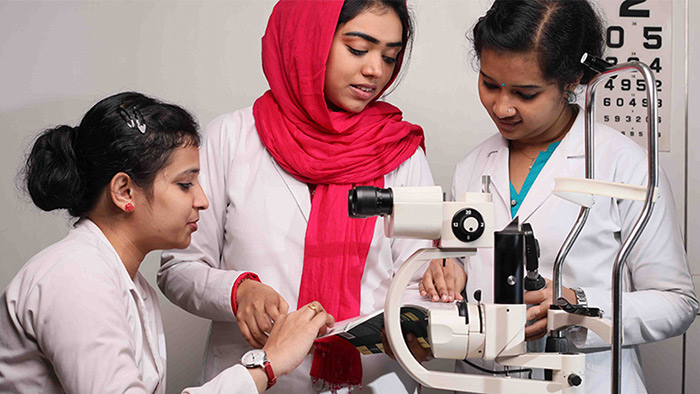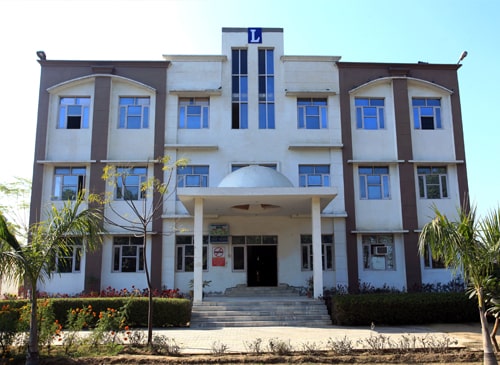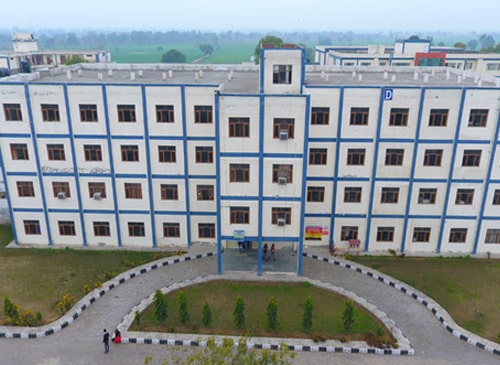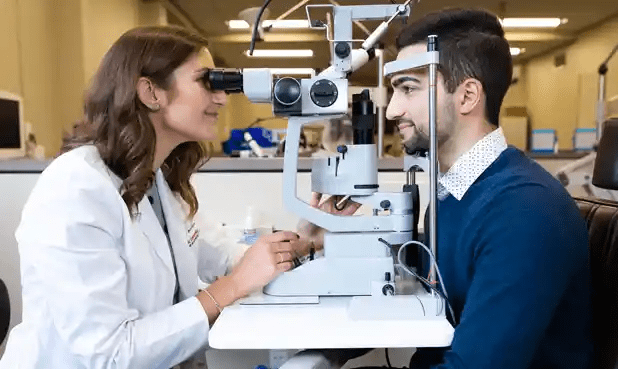FAQ's
1.What is an optometry diploma?
Ans: An optometry diploma equips students with knowledge and skills for eye care. It covers eye anatomy, vision assessment, and disease diagnosis. Through hands-on training, students learn to conduct eye exams and fit contact lenses. Graduates can become optometrists, working in private practices or eye clinics, providing essential eye care services to patients.
2.What does the optometry diploma curriculum typically include?
Ans: The optometry course diploma curriculum typically includes covering eye anatomy, vision assessment techniques, ocular diseases, contact lens fitting, pharmacology, and clinical optometry. Students also receive training in professional ethics, patient communication, and practical skills through clinical rotations.
3.What career opportunities are available with an optometry diploma?
Ans:Career opportunities with an optometry diploma include becoming an optometrist specialising in areas such as contact lenses, low vision, or paediatric optometry. Graduates can work in private practices, eye clinics, hospitals, or research institutions. Other options include working as an optician or vision therapist or pursuing further education in optometry or related fields.
4.What are some emerging trends or areas of growth in the field of optometry?
Ans:Some emerging trends and areas of growth in optometry include tele optometry, where eye care services are delivered remotely through technology, and myopia management, focusing on strategies to control the progression of nearsightedness. Additionally, advancements in wearable technology and digital eye health tools are reshaping how optometrists diagnose and manage eye conditions. Collaborations with other healthcare professionals and an increasing focus on preventative eye care are also driving growth in the field.
5.What are some of the key ethical considerations in optometry practice?
Ans: Key ethical considerations in optometry practice include maintaining patient confidentiality, obtaining informed consent for procedures, ensuring competency in providing care, avoiding conflicts of interest, and upholding professional integrity and honesty. Additionally, optometrists must adhere to standards of professionalism, respect patient autonomy, and prioritise the well-being of their patients above all else.
6.Can optometrists with diplomas perform surgical procedures?
Ans: No, optometrists with diplomas typically do not perform surgical procedures. Surgical procedures are typically performed by ophthalmologists who have received specialised medical training and are licensed to perform surgeries on the eyes. Optometrists focus on providing primary eye care services such as eye exams, vision correction, and management of eye conditions through non-surgical means.




















